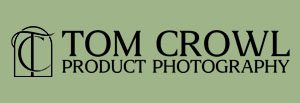Understanding copyrights in product, advertising and commercial photography is crucial for businesses and entrepreneurs looking to protect their interests and assets.
Unfortuantely, navigating the world of copyrights and image licensing can be a difficult task, especially when it pertains to product photos.
So here’s a simple guide to help you grasp the essentials of copyright laws related to product photography in the United States.

What is Copyright?
• Copyright is a form of protection given to creators of original works, including photographers.
• Once a photograph is taken, the photographer automatically owns the copyright to that image.
• This ownership means the product photographer has the exclusive right to reproduce, distribute, and display their photographs.
Reference: U.S. Copyright Office – What is Copyright?
Hiring a Photographer Doesn’t Mean You Own the Copyright:
• Simply commissioning or paying for a photograph doesn’t transfer the copyright to you.
• The photographer retains the copyright unless there’s a written agreement stating otherwise.
• Businesses should always ensure there’s clarity on this aspect before finalizing any deal.


Work-for-Hire Agreements:
• In a work-for-hire scenario, the party commissioning the work owns the copyright, not the creator.
• However, for photography, the agreement must be in writing to be considered work-for-hire.
• Without a written agreement, the default is that the photographer owns the copyright.
Reference: U.S. Copyright Office – Works Made for Hire
Licensing Vs. Transferring Copyright:
• Licensing allows a business to use a photograph in specific ways, but the photographer retains the copyright.
• Transferring copyright means the photographer gives up all rights to the image permanently.
• Licensing is often more common because it provides flexibility for both parties.
• Ensure the agreement specifies the duration, scope, and terms of the license.

Infringement Consequences:
• Using a photograph without permission or beyond the scope of a license can lead to copyright infringement.
• Infringement can result in legal actions, fines, and damage to a business’s reputation.
Reference: U.S. Copyright Office – Copyright Infringements
Registering Photographs with the Copyright Office:
• While photographs are copyrighted when taken, registering them provides additional legal protection.
• Registered works may be eligible for statutory damages and attorney’s fees in infringement cases.
Reference: U.S. Copyright Office – Registering a Work



Considerations Before Finalizing an Agreement:
• Always have a written agreement, even if the relationship is informal.
• Clearly outline if the project is work-for-hire or a licensing agreement.
• Specify the duration, scope, and any restrictions in the license.
• Discuss and decide upon the rights for future uses or adaptations of the photographs.
• Determine the costs involved, not just for the shoot but for any additional licenses or rights purchases in the future.
• Address the rights to edit or modify the photographs.
• Ensure both parties understand the terms and have a chance to negotiate before signing.
Remember, when in doubt, always consult with a legal professional or specialist in copyright law. Protecting your business interests and respecting the rights of photographers is essential for a fruitful and long-lasting professional relationship.
Learn more about copyrights in product photography
read these recommended articles:
Website & Commercial Photography Licenses
What Is A Commercial Photography Licensing and Usage Fee?
and
Why Are Photo Licensing Rights Important?
Discover How Professional Photography Can Elevate Your Brand
Get a Custom Quote Tailored to Your Specific Needs

Take a minute to fill out the form below. Doing so will help me understand your product photography needs. Once I receive your information, I'll reach out to you personally to discuss the project in more detail and create a customized quote for you.
You may also text me at: 410-596-4127 or E-mail me at: tom@tomcrowl.com

